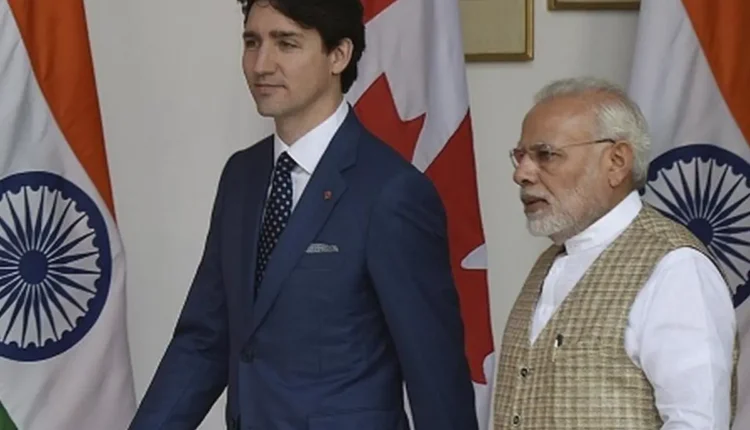India-Canada struggle to mend ties despite visa easing
India-Canada Relations at Crossroads: A Long Path to Reconciliation
The roots of this diplomatic crisis date back to September 18 when Canadian Prime Minister Justin Trudeau announced that Canada was actively pursuing allegations connecting Indian government agents to the murder of Hardeep Singh Nijjar, a proponent of Khalistan, a Sikh homeland separate from India.
This assertion led to a series of tit-for-tat measures, including the expulsion of India’s intelligence chief in Ottawa and India’s suspension of 13 visa categories for Canadians.
On October 25, New Delhi’s decision to resume issuing visas in four categories was seen by many as a modest de-escalation. However, Indian officials emphasized that it should not be interpreted as a full thaw in relations.
A high-ranking Indian foreign ministry official stated, “This is not a thaw. People can read whatever they want into it.” Meanwhile, Canada insists that the onus of resolving the crisis lies with India, which needs to take the first step toward reconciliation.
Both nations are hesitant to make bold moves towards reconciliation, given the unpredictability surrounding the ongoing murder investigation, the impending trial, and India’s upcoming national elections in May. Michael Kugelman, director of the South Asia Institute at the Wilson Center in Washington, summed up the situation, stating, “The relationship is in deep crisis, perhaps its worst ever.
Each side may have a strong interest in the crisis not getting completely out of control, but that doesn’t mean there are strong incentives to resolve the crisis.”
Ajay Bisaria, India’s former ambassador to Canada, described the current state of relations as a “de-escalation phase” achieved through quiet diplomacy. However, the impact of the visa restrictions, even in their partially relaxed form, is expected to hinder the movement of thousands of Indians and individuals of Indian origin residing in Canada or planning to study there.
Although trade and business ties have been spared from the acrimony, discussions on a free-trade deal have been delayed, and Canada’s Indo-Pacific plans, where cooperation with India is crucial to counter an assertive China, are also under threat.
Canada has the largest Sikh population outside of Punjab, with over 770,000 individuals reporting Sikhism as their religion in the 2021 census. India is the largest source of foreign students for Canada, accounting for 40% of study permit holders and contributing significantly to the country’s international education sector, worth over C$20 billion annually.
Tensions between India and Canada over Sikh separatism have persisted since the 1980s, making it a challenging issue to resolve. Prime Minister Narendra Modi, who leads a Hindu nationalist party, is unlikely to back down, particularly in the lead-up to the national elections.
While there is a modest de-escalation in the form of visa relaxation, many retaliatory measures remain, and significant mutual anger persists.
Michael Bociurkiw, a foreign policy expert at the Atlantic Council, noted, that a pause is necessary “for cooler heads to prevail and to get the relationship back on track.” However, he cautioned that such a process will not happen overnight, emphasizing that it will take time to mend these frayed diplomatic relations.

